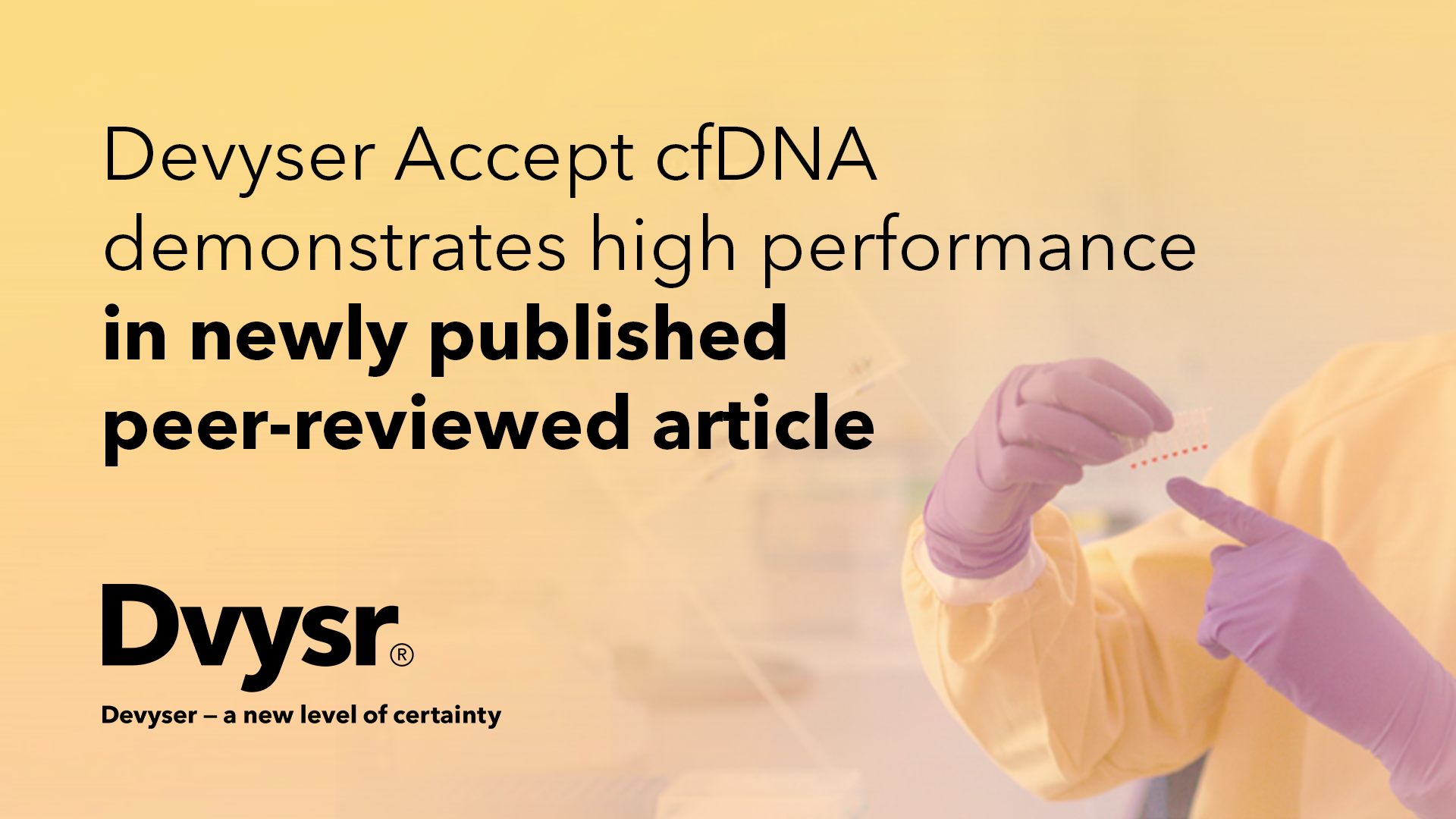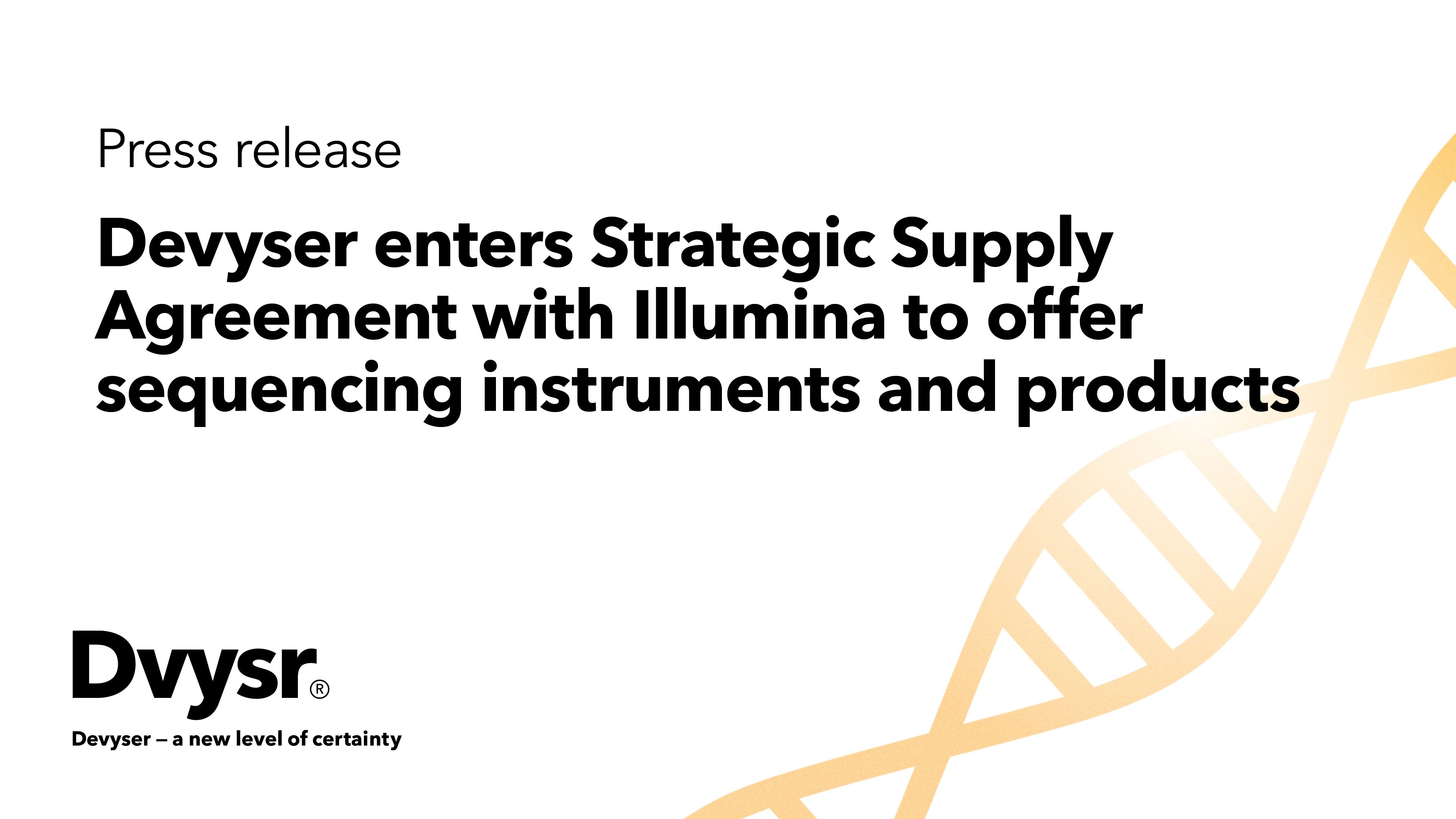Devyser acquires Swedish company Cybergene AB and strengthens its position in the aneuploidy market
Devyser Diagnostics AB (publ), a Swedish molecular diagnostics company, today announces that it has...
Post-transplantation

Post-transplantation | February 6, 2024
In the first issue of 2024, the journal Clinica Chimica Acta, published a performance study featuring Devyser Accept cfDNA1. The study was the result of a collaboration between Karolinska University Hospital, Karolinska Institute, and Devyser. The purpose of the study was to investigate the accuracy, precision, and sensitivity of the assay as a novel NGS product for monitoring dd-cfDNA in renal transplantation.
Transplantation is vital for patients with renal failure and offers a higher chance of survival and quality of life compared to dialysis. However, there is a significant risk of allograft (transplanted tissue) failure following transplantation. A variety of complications can cause allograft failure, including surgical complications, renal injury, renal vascular thrombosis, and chronic rejection. To reduce the risk of allograft failure from such complications, determination of an immunologic match between donor and recipient is carried out prior to the transplantation. Post-transplantation monitoring is generally performed by utilizing imaging techniques, organ-specific protein biomarkers, protocol or for-cause biopsies and screening for the presence of donor-specific HLA antibodies (DSA). However, some of these monitoring methods may only be possible after irreversible damage has already been caused to the kidney, and therefore failure of the allograft is inevitable.
A newer approach, utilising modern technology, is to use highly sensitive genetic diagnostic methods to detect allograft rejection before non-reversible damage occurs and ensure better clinical outcomes for transplantation patients. Devyser Accept cfDNA monitors dd-cfDNA, a degraded type of genomic DNA released by cells due to cell necrosis. dd-cfDNA has been demonstrated by several studies as a useful biomarker for organ rejection.
To analyse the performance of the assay, the study used 1561 samples, including 711 artificial samples, 549 clinical samples, and 301 blood donor samples. Performance characteristics analysed in the study included limit of detection (LoD), limit of quantification (LoQ), and linearity. LoD and LoQ are important determinants of how low of a concentration of dd-cfDNA can be reliably measured using the assay. The assay achieved both an LoD and LoQ of 0.1%, meaning the assay had high sensitivity. Linearity was excellent across a range of concentrations, showing that the test performs accurately and precisely despite variations in concentration.
The study also included an instance where dd-cfDNA was observed several days before an increase in creatinine, another common biomarker for tracking transplant rejection. Whilst other studies have observed this phenomena, larger studies and more data is needed to draw firm conclusions. However, if the presence of dd-cfDNA precedes other biomarkers such as creatinine, it may buy clinicians valuable time to implement meaningful interventions that could improve clinical outcomes of transplant patients.
Assays with high numbers of markers were thought to equate to a high-performance, however, they result in a greater amount of data to be analysed, cost more to run, and do not offer significant improvements in performance. Devyser Accept cfDNA utilises only a select number of genetic markers to monitor for allograft injury, resulting in a cost-effective assay. This also encourages the assay to be used as a more frequent monitoring tool following transplantation, allowing for physicians to follow up-to-date changes in their patients more closely. The simplified workflow allows the assay to be performed on-site, without the need for transportation to external laboratories, further reducing costs and saving time.
This paper confirms the high sensitivity of Devyser Accept cfDNA and demonstrates the potential of the assay to be used in earlier detection of rejection than other methods of transplantation monitoring. Follow our blog to learn more about our post-transplantation offerings as more studies are published.
Read the study in full here: https://doi.org/10.1016/j.cca.2023.117647

Devyser Diagnostics AB (publ), a Swedish molecular diagnostics company, today announces that it has...
Read More

Devyser today announced that it entered a strategic agreement with Illumina, a global leader in DNA...
Read More

Devyser is proud to announce that the company has been awarded a tender by Oslo University Hospital...
Read More

Devyser, a leading provider of advanced genetic testing solutions, has been awarded a new tender in...
Read More